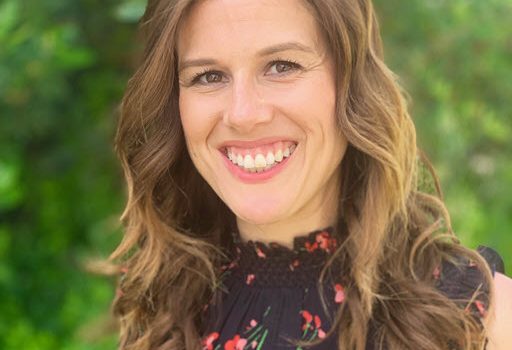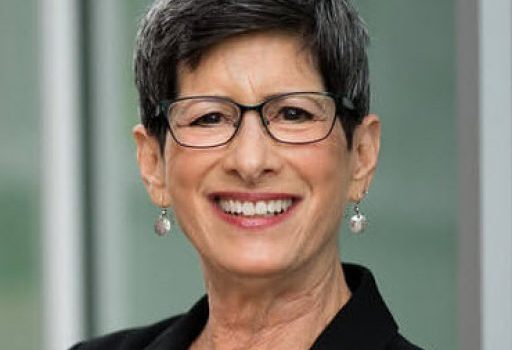
Episode 22: Tara Hughes–Unexpected Career Paths
Category:EDUCAUSE,Higher Education,Information Security,Introverted Leadership,Leadership,PodcastPodcast: Play in new window | Download
Subscribe: Spotify | Amazon Music | iHeartRadio | Podchaser | TuneIn | Deezer | RSS
Episode 022 Show Notes: Tara Hughes
Introduction

Key concepts
- Emergency hires that become permanent positions
- INFJ and managing students
- Physical exercise and processing the day
- Imposter Syndrome and panic attacks
Quotable
My path to my career is a little unusual–or at least it’s not the path that I would have envisioned.
I’m not one for more superficial relationships. That’s not where I shine. With counseling, I really wanted to have meaning to whatever I chose to do.
Exercise has probably been the number one thing that has helped me be able to process the day,…physical exertion helps me decompress from the mental exercise of always having to engage with people.
As an introvert, especially as an INFJ, I’m constantly assessing and reassessing. When I come out of a situation, I’m evaluating how did I do, could I have done better? And then that totally informs the next time.
I had a hard time wrapping my mind around how did they let me in and why….that was really intimidating and where the Imposter Syndrome was definitely rearing its ugly head. And I really struggled to understand how in the world I got included in this group.
Resources or Products Mentioned in this Episode
- California State University–Channel Islands
- Rochester Institute of Technology
- University of Rochester
- EDUCAUSE Security Professionals Conference
- Leading Change Institute (CLIR)
Links
- Follow Hope for the Introvert on Twitter
- Like my page on Facebook
- Support me on Patreon
- Get swag for Hope for the Introvert and Introverted Leadership at Zazzle
Transcript
Ben: Joining us today is Tara Hughes. Tara is Interim Manager of Administrative Services at California State University-Channel Islands. I met Tara at the 2019 EDUCAUSE Security Professionals Conference in Chicago where Tara spoke on, “You’re All a Bunch of Phonies: Impostor Syndrome and Information Security.” The presentation was standing room only, and the attendees described it as very impactful. Given the struggles with self confidence many of us have as introverts, I thought it would be helpful to chat about impostor syndrome on the Hope for the Introvert podcast. You can contact Tara via email tara.hughes@CSCU.edu or through Linkedin, Tara Hughes and Twitter @TinyTara. I encourage our listeners to visit HopefortheIntrovert.com where you’ll find complete show notes including a transcript of today’s conversation.
Ben: Hi Tara.
Tara: Hello. Thanks for having me.
Ben: I’m excited that you’re going to be on the podcast. It was great connecting with you in Chicago and I’m really looking forward to our conversation. Before we get into our discussion about Impostor Syndrome, let’s talk a little bit about your career and your background. Can you tell us about what you do? What is your workplace like? Channel Islands sounds like an intriguing place to work because it sounds like it’s on an island. I have no idea if it is or not, but tell us about what you do and how you got there.
Tara: Sure. So,I guess the most important question straightaway is “No, we are not on an island, so I don’t need to take a boat to work. “But we are more representative of the surrounding area. It used to be a California state mental hospital and it was closed–I want to say in the 80s by Reagan, although I’m not 100% sure on that. And then California State University was able to acquire the land. They opened up California State University and they named it Channel Islands because the Channel Islands are just off the coast from where the school is located. And they wanted it to be representative of the surrounding counties since it is more of a commuter school. So my path to my career is a little unusual–or at least it’s not the path that I would have envisioned.
[bctt tweet=”My path to my career is a little unusual–or at least it’s not the path that I would have envisioned. @TinyTara” username=”hopeintrovert”]
Tara: I am currently the Interim Manager of Administrative Services. I’ve been at Cal State Channel Islands for–it’ll be five years in August. And what I currently do is kind of built off of what I was initially hired to do. So when I was hired back in 2014, our president’s office–their main telephone number to contact them had accidentally been put on all of our marketing materials and our website as the main campus telephone number. And so, after a couple of years of the president’s office fielding calls and kind of just not loving that experience, the president at the time had requested our CIO at the time, Michael Berman, to come up with some sort of way to address that issue, because it was causing things to come straight to the president’s office and not giving other departments the opportunity to address issues before it got escalated all the way to the top.
Tara: So he had kind of this brainchild of having a one-stop shop called the Solutions Center. And so they hired seven student assistants to be campus operators for what was the main line. And then they created a new extension for the president’s office, and then they needed someone to manage these students because no one wanted to do it. And so at the time, my husband has worked here since, Gosh, I don’t even, it’s been probably 13 or 14 years. At the time we had just moved back to Camarillo. He had been commuting for the previous four or five years. I was looking for a job and he said, “My wife would be great.” So they hired me as an emergency temp hire and that turned into a permanent role. Six months after that, they gave me the Commencement hotline because no one wanted to answer that extension.
Tara: Then six months after that, they gave me the IT Help Desk because they were having some trouble with managing the students and felt like they were having trouble multitasking. We took the help desk extension and routed it into the call center. The students that work at the help desk only had to help in person and kind of separating those duties and simplifying them a little bit. Last summer, Business and Finance had acquired it as a sub-unit. So when we were brought over, they had asked that I lead their shared services in a more official capacity and turn the Solutions Center into an official shared services and take over the HR main line. So our students now answered the Human Resources main line as well. And the goal is really to be able to triage all basic Tier One kinds of questions that typically are answered on the website or found somewhere, but that people might have trouble locating, or just feel better to have another human being confirm that information to them. I manage that and I manage the help desk still. So I have about at any given time about 18 student assistants that I employee and we train and they have to know a lot about a lot.
Ben: This is coming in as an emergency hire you said, which is interesting because that’s basically how I got into RIT. I also was brought in because there was a worm at that point in time that was wreaking havoc. I had worked with the Information Security Officer at a previous consulting engagement. He found out I was available and wanted me to come in and help manage the emergency communications around what was happening with the worm. Now that lasted maybe two hours and then it was, “Well, you’re not going to be doing that.” But I was able to move into creating a whole lot of really interesting process stuff and build a security awareness program and all sorts of things like that. But none of that was envisioned when I actually took the position, and it was supposed to be temporary and it has been–a month ago–it’s been 15 years since I’ve been at RIT. So it’s funny how these paths go.
Ben: The other thing I wanted to ask you, because my background has nothing whatsoever to do with what I’m doing for a job now at all. What was your background coming into that position? Your husband said, “Oh, my wife would be great at this” and they agreed with it. What was your background coming in?
Tara: I guess I should start off, my husband and I met my freshman year of college, got married a year after. We got married when I was really young. I was 18. We’ll be celebrating 17 years in September. And so it’s super cool, but not necessarily traditional. We had a family much sooner than we were anticipating. I took a lot of time off from school, and didn’t go back to get my Bachelor’s degree until my youngest went into kindergarten. And my goal was really to get my Bachelor’s before I turned 30. I got my Bachelor’s degree in counseling at a small private liberal arts school. That’s where we had met and his dad and mom both worked there and I graduated my counseling degree at 29. So I made my goal, which was very great.
Tara: But really, I was so drawn to people and relationship building and feeling like there were so many things that I cared about–connecting with people on a really authentic level. I’m not one for more superficial relationships. That’s not where I shine. With counseling, I really wanted to have meaning to whatever I chose to do. And we talked a lot about as our three girls were growing up, that at some point because we got married young and had kids young, that there was going to be this whole life after family to some degree. And what would I do to utilize that time? So working was always going to be in the scope in some way, shape, or form. We just didn’t know what it would look like.
[bctt tweet=”I’m not one for more superficial relationships. That’s not where I shine. With counseling, I really wanted to have meaning to whatever I chose to do. @TinyTara” username=”hopeintrovert”]
Tara: After I graduated, I worked at an insurance company. My boss was fantastic, but I didn’t love the work because it didn’t feel meaningful ,and it wasn’t that relationship building that I craved. And then right after that we moved back to Camarillo, and it was like, “Well, I don’t know what I’m going to do for work.” And so my husband–just my biggest cheerleader–thought you’re going to manage student assistants, you could totally do this. And what’s been incredible is that so much of the mentorship and coaching very much aligned with my counseling background. So that has been just a wonderful surprise,but not something that I could have pinpointed until I fell into it, if that makes sense.
Ben: I think it makes perfect sense. We were talking before the podcast started about temperament types and we’ll talk about that a little bit more. And what you identified on the temperament type was INFJ, which is counselor, the way that that’s normally interpreted. So that all fits together very well. And I would think in terms of working with students with the stress–I mean what I’m seeing at RIT, the amount of stress that they’re under now–to be able to have someone who is managing them but who is also attuned to the fact that they are people and not just students who are filling a position to get things done. I think it’s probably very, very good for them. I think like you said, you were interested in relationship building and well you have at least 18 students to to have some type of relationships with as well.
Ben: But it’s interesting, I–my background–I went to a large state school in Florida. Ended up being an Anthropology graduate because I honestly couldn’t figure out what I was doing and I had done terribly my first year, and all my initial plans of what I was going to do just didn’t work out. Went to work for my dad for a couple of years. He installed floor covering. I did not want to do that for the rest of my life. Got accepted to a university north of Chicago, and so we moved from Florida to Chicago with a 15-month old not knowing where we were going to be living when we left, knowing that they might have an apartment that was opening up, putting everything into a 14-foot UHaul and caravaning three days up to Chicago. No clear sense of where we were going to stay, but a very clear sense that that’s what we were supposed to be doing.
Ben: And everything kind of worked out and fell into place and different things. But I ended up initially doing what I thought was going to actually be a position in Christian Education. And that ended up changing over to doing a Masters in Church History, which I’m not sure what exactly I thought I was going to be able to do with it when I came out. So I applied very–it’s interesting because you come across people and one of the professors was just so passionate and so engaging that I was really excited about it. I ended up entering a doctoral program at the University of Rochester, which is what brought us to Rochester, thinking we’d be here for four years and that was in 1987 and we’re still here. Did not finish the doctorate but through a series of circumstances and different opportunities, now I’m doing cyber security.
Ben: So definitely not a straight career path at all. And it will be interesting because when we start talking about this Imposter Syndrome piece–been there, absolutely been there–coming in with a liberal arts background, and I’m trying to work in a technical field with technical people and they’re all going to see through me sort of thing. So it’s just really interesting because–I don’t know, maybe for some people it works where it’s a very clear career path. For me, it’s really been what has opened up and do you take the steps forward in it or not. So it’s really interesting to me hearing about your path to get there. We also did the getting married before my wife finished college piece of things, but she was able to finish before our son was born. But still, it was after we were married and it was a bit of a struggle–the finances and where are we going to live, and all of those pieces, and still persevered and got through it.
Ben: But it’s intriguing. So, like we mentioned, you had talked about the INFJ piece and how sometimes it’s closer–well, one of the three times you took it, it came out to ENFJ–and I know how this works for me because I play with the questions just a little bit and see, “Ah, so that changed that. And coming with a counseling background, I’m sure it was even more, “How do I look at this and how can–maybe not how can I manipulate it, but what are the little bits of changes I can do with this?” [Tara laughing] So basically typing as an introvert, but very interested in relationship building, which is not–I don’t think–it’s not a disconnect at all.
Ben: But what has it been like for you in terms of being an introvert? Do you notice a different in terms of how you deal with people? It’s very tough because it’s a spectrum, and I think I’ve become more and more extroverted, and it’s not always very clear for me. It really comes down to how do I recharge and what do I need to do that. But on a given day, if I’m at a conference, nobody is going to think I’m an introvert because I just don’t tend to present that way. So how has that been for you in terms of personality type? You did a counseling degree, so obviously you’ve thought about some of this stuff at some point, but how has that worked in terms of your strategy for how you approach work? What you do in the workplace and in life in general?
Tara: Yeah, it’s interesting. I think growing up everyone would have said I was an extrovert and I always considered myself an extrovert, being a stay-at-home mom for the number of years that I was. I thought that confirmed that I was an extrovert because I would get really lonely being at home all day, and just was so excited when my husband would come home, because now I could have that human interaction with an adult. Not that the kids aren’t humans, but it’s different! And so I really was surprised when I came to work full time to find that I was exhausted at the end of the day. And it wasn’t just physical exhaustion. There was a mental exhaustion of having to be on all the time. I think entering into IT was another compelling part of that because I wasn’t coming into it as an IT expert.
Tara: And so I had to work really hard to be able to speak the language as my colleagues sometimes. And then take that language and put it into a language that your average user could understand, and talking at their level and not at a more technical level. And so that relationship building started to take really different forms. Which was great, but I was so depleted at the end of the day and found myself thinking of myself more as an introverted extrovert, where I still really wanted to be around people, but then really need to find the opportunities to have quiet time and be alone and recharge, whether that was just zoning out watching TV or reading a book or going running.
Tara: I would say exercise has probably been the number one thing that has helped me be able to process the day, and not have to be on, in terms of building those relationships. But just that physical exertion helps me decompress from the mental exercise of always having to engage with people. Conferences I would say is similar. The other thing though is that when I came into working full time at Channel Islands, I was really struggling with panic attacks. I’d never struggled with that before. And there was something about being busy and having to think about other people that really almost eliminated it entirely. Because I didn’t have time to think about myself or what I was worried about, and that was great. But it eventually started to crop up in moments where I had to present at one point. That was very scary for me. And there’s a lot of internal dialogue that goes on if I have to go into a situation where I’m just not sure of myself.
[bctt tweet=”Exercise has probably been the number one thing that has helped me be able to process the day,…physical exertion helps me decompress from the mental exercise of always having to engage with people. @TinyTara” username=”hopeintrovert”]
Tara: And I think as an introvert, especially as an INFJ, I’m just constantly assessing and reassessing. So if I go into a situation, when I come out of that, I’m evaluating how did I do, could I have done better? And then that totally informs the next time that I’m going into a situation. And I’ve kind of set up all of these different obstacles in my mind to some degree that I need to clear, even though those were former obstacles in the previous situation that might not necessarily present in this next one, and so you’re just in your head a lot. So that’s where I do like being in a field where I’m forced outside of my head. But then have to constantly bring myself back to a place where I can recharge and be by myself or get some exercise in so that I can get back to it. And so whether that’s work or a conference, I have to kind of coach myself into getting excited to put myself out there. I never regret doing it, but it does take something out of me that I have to eventually find a way to recharge.
[bctt tweet=”As an introvert, especially as an INFJ, I’m constantly assessing and reassessing. When I come out of a situation, I’m evaluating how did I do, could I have done better? And then that totally informs the next time. @TinyTara” username=”hopeintrovert”]
Ben: It was interesting, because as I said, we did meet at this EDUCAUSE Security Professionals Conference and you’re coming in from a different perspective, different background. Many people, especially when they’re on the awareness side or coming in from non-technical backgrounds, there’s always this question for them of whether they belong there or not. And I had some really interesting conversations with a couple of people who said, “I don’t feel like I’m a cyber security professional.” “Well, you just presented at a Security Professionals Conference, so I think you can kind of claim that now,” and realize that yes, we haven’t arrived–we absolutely haven’t arrived–but that’s something you can point to that’s kind of a bit of credibility for yourself or credential in a sense.
Ben: One of the things that you had told me earlier also is that you are part of a leadership program within EDUCAUSE. And I meant to ask you about it before we got started, but could you talk a little bit about that, and you’ve just spent the last week at this Leadership Institute, and I’m really interested in what attracted you to the program, whether you felt ready for the program or not, and what it’s been like for you and what you’ve taken away from it. .
Tara: Okay. Yeah. So I went to the Leading Change Institute, which is affiliated with EDUCAUSE and CLIR. It was an application process and I had to submit a resume and get a letter of recommendation, and absolutely was, I want to say encouraged, but even more than that, kind of hounded by a mentor of mine, to give it a shot. And I thought, no, I don’t, I don’t think I’m at a place where they’ll accept me. So I really talked myself into thinking, well, I’ll apply, but I know I won’t get it, so it’s not much of a risk. And then I got in and thought, “Oh no, what have I gotten myself into?” I think our cohort was about 30 people from different institutions across the nation. We actually had someone from Dublin, Ireland and someone from Australia, and I think they both worked in the libraries at their institutions, but it’s a mix of IT professionals and librarians.
Tara: I had a hard time wrapping my mind around how did they let me in and why. A lot of these folks are CEOs and AVPs. And they’re just at a slightly higher level, in title and just place in their career than I am. They have much more experience. And so that was really intimidating and again, you know, as we can talk it about later. But that was where the Imposter Syndrome was definitely rearing its ugly head. And I really struggled to understand how in the world I got included in this group. And so I went into it thinking–well actually when I went to the Security Professionals Conference, I thought, well, I’ll just try my best with my presentation and I’ll try my best at LCI. The worst thing that can happen is that I’ll learn from it if I make a mistake.
[bctt tweet=”I had a hard time wrapping my mind around how did they let me in and why….that was really intimidating and where the Imposter Syndrome was definitely rearing its ugly head. And I really struggled to understand how in the world I got included in this group. @TinyTara” username=”hopeintrovert”]
Tara: For I would say both instances, I was shocked to discover that I did well and that I had a place there. That wasn’t what I expected going into it. And it was a really lovely surprise coming out of both of those experiences. And really, the Leading Change Institute expects that you understand certain management fundamentals. Really what they’re getting at is more of the finesse of not just managing, but really being a leader and how do you implement change with things that are very difficult to grapple with, especially if you have even things on a national level. How to keep that broad perspective, but still be effective in very specific ways. It was fantastic. DC was wonderful. I hadn’t been to DC since I was in high school, so it was really wonderful to go back with new eyes of appreciation and see things with more experience in my life to be able to really enjoy the history and the remembrance of what so many of those memorials call for us to do.
Tara: I just loved that it was–it was really neat and it was great again to network with people, but again, I had to really coach myself into making the most of that opportunity and putting myself out there. And the worst that could happen is that it doesn’t go the way I want. And then it’s only for a week. And then you’re like, okay.
Ben: It sounds like a really cool thing to be involved in. And honestly, I would have probably some of the same concerns that you do because I’m not an AVP and I’m not an Information Security Officer or a CIO. There were times where I aspired to that, but now I’m don’t know that I want to. ‘m overall enjoying what I’m doing, but I’m also enjoying exploring mentoring and podcasting and things like that. So I’m finding that that’s providing a great deal of satisfaction. I think it’s really cool that you’re involved in that group and I think it’s a great opportunity.
Ben: Tara, thanks for a great conversation. I look forward to our next episode where we will talk more about the EDUCAUSE Security Professionals Conference and why you spoke about Imposter Syndrome, your experience in speaking, and one thing I noticed, the reception for the conversations and the conversations that opened was really great.














